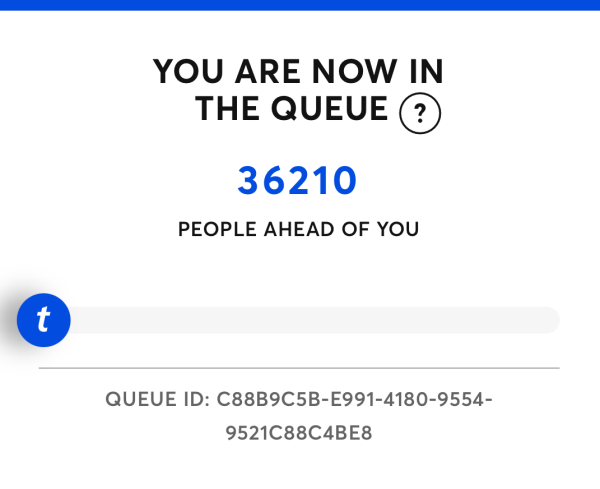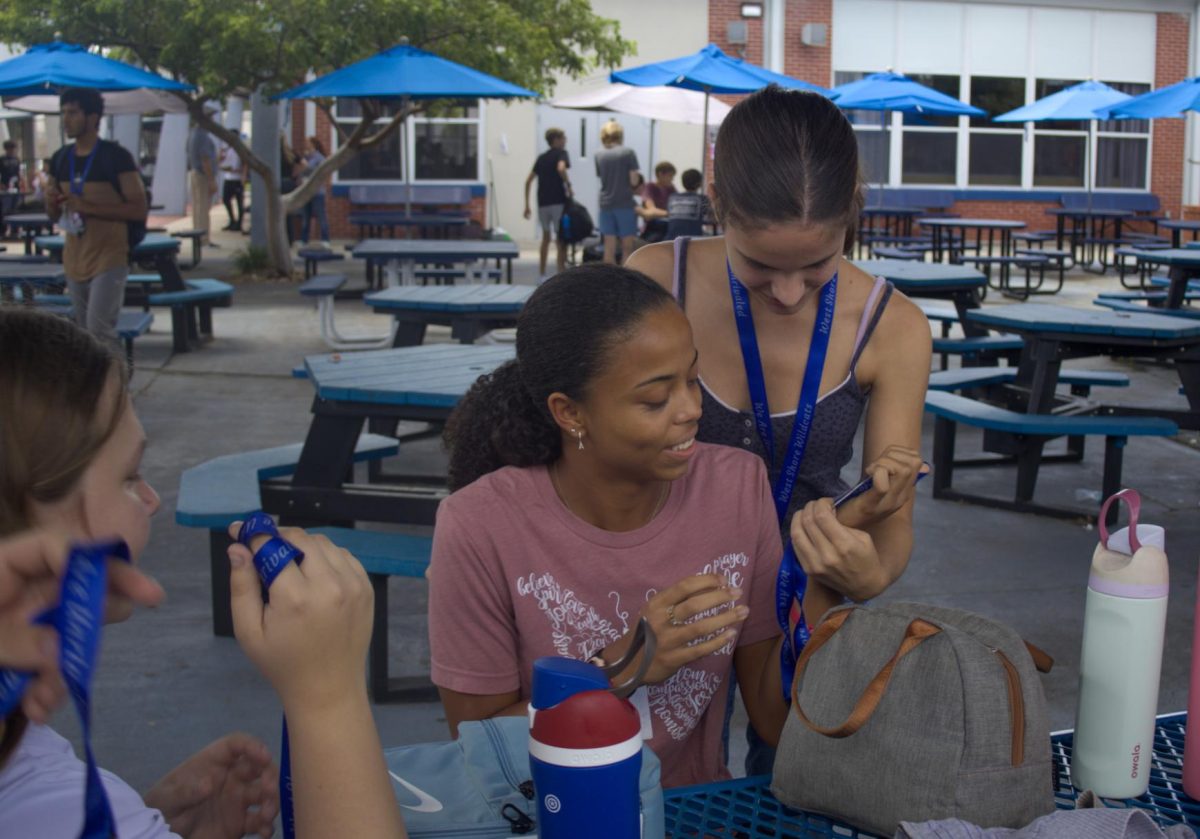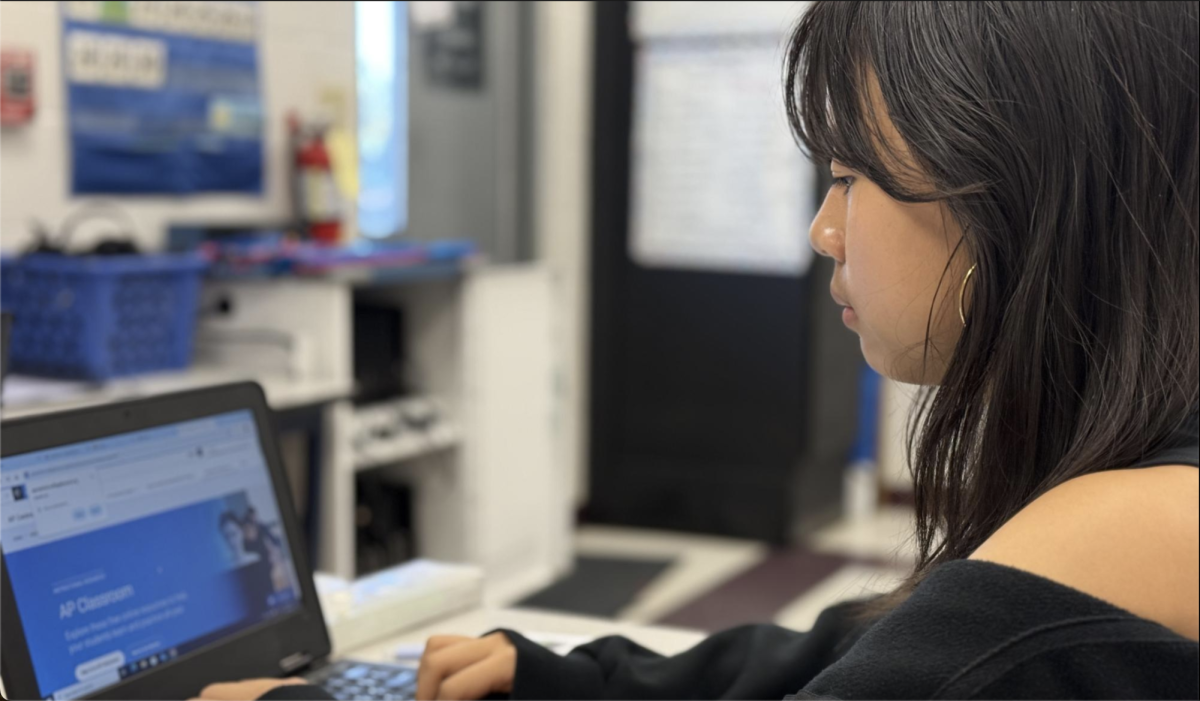On April 3, thousands of Lady Gaga fans waited in the Ticketmaster queue to buy tickets to her “Mayhem Ball” Tour in Miami. The excitement was palpable, but when people finally got through the line, they were in for a rude awakening. For one of the highest and farthest seats from the stage, the cheapest ticket available cost $260 before additional fees. Within minutes, resale tickets popped up with prices skyrocketing well past $500, leaving many fans unable to even attempt to get a ticket.
Unfortunately, this has become a trend for those who want to see big names in concert. Over the past several years, fans of some of the biggest artists of the 21st century — Taylor Swift, Beyonce, Sabrina Carpenter, Tyler the Creator and now Lady Gaga — have adapted to battling ticket queues, bots and inflation prices to attend the concert. The road to the concert experience, which was once fueled by excitement, has turned into an emotionally and financially draining process.

While many want to blame these ticket prices on the fact that these artists are insanely popular, the real issue is much deeper. One of the most significant factors is dynamic pricing, the practice of varying the price for a product or service to reflect changing market conditions. This allows the artists and companies to gain profit, but it creates a battle for everyday fans who might not be able to afford higher prices. This issue has become more prominent after the popularity surge of Taylor Swift’s “The Eras Tour.” Fans reported massive price ranges: in some cases, some of the furthest seats from the stage were selling for $1,000 or more.
Adding to the nightmare, another major problem with concert ticket sales is resellers. The majority of the time, many resellers use bots to snatch portions of tickets before they go on sale and sell them on secondary markets like StubHub
or SeatGeek. However, these actions have not gone unpunished, as several individuals have been arrested for scamming buyers out of tens of thousands of dollars — one report by CTV News showed that some Taylor Swift fans were scammed out of as much as $300,000. As of today, resale tickets for Lady Gaga’s Miami show are being listed for approximately $2,200, which raises ethical concerns about live event pricing.
In face of these issues, work is being done to address the dynamic pricing issue. On March 31, 2025, President Trump signed Executive Order 14254, which is intended to protect fans from unfair pricing in the live entertainment industry and reform America’s live event ticket pricing problem. The order calls on the Federal Trade Commission to ensure competition laws are appropriately enforced within the entertainment industry and take enforcement action to prevent unfair or deceptive actions in the secondary ticketing market to maintain price transparency with ticket-purchasing on both official and secondary ticketing apps.
The need for further action has only become more urgent. Concerts, which were once a fun way to celebrate music, are becoming luxury experiences accessible only to those who are willing to pay hundreds or even thousands of dollars for tickets. As more artists announce tours, the industry must return to a balance between maximizing profit and being fair to the buyers or audience sizes will dwindle.
Beyond just a financial burden, this trend has taken a toll on the mental health of fans. The anticipation of getting a ticket is often replaced with stress, anxiety and disappointment. For many, live music is more than just entertainment; it is a source of joy, identity and emotion.When that access becomes gatekept by algorithms and exploitation, the cultural value diminishes.
In the end, something has to give, or the audience for concerts will cease to exist altogether. Whether it is through stronger legislation, ethical ticketing websites or industry self-regulation, the systems need to change to ensure fans – not bots, scalpers, or mega corporations – are at the center of the concert experience.


![Sophomore Isabelle Gaudry walks through the metal detector, monitored by School Resource Officer Valerie Butler, on Aug. 13. “I think [the students have] been adjusting really well," Butler said. "We've had no issues, no snafus. Everything's been running smoothly, and we've been getting kids to class on time.”](https://westshoreroar.com/wp-content/uploads/2025/08/IMG_9979-1200x800.jpg)



































